Interview with Ambassador Bam of South Africa in Seoul
Ambassador Nozuko Gloria Bam of South Africa in Seoul said, “We will continue to focus on the areas as mentioned in the 2015 State of the Nation Address, in what we called the Nine Point Plan to ignite economic growth and create jobs.” She made the statement at a recent interview with The Korea Post. From the details of the interview it became obvious that there are a lot of things which both Korea and South Africa can exploit for the promotion of mutual benefit. Details of the interview follow:
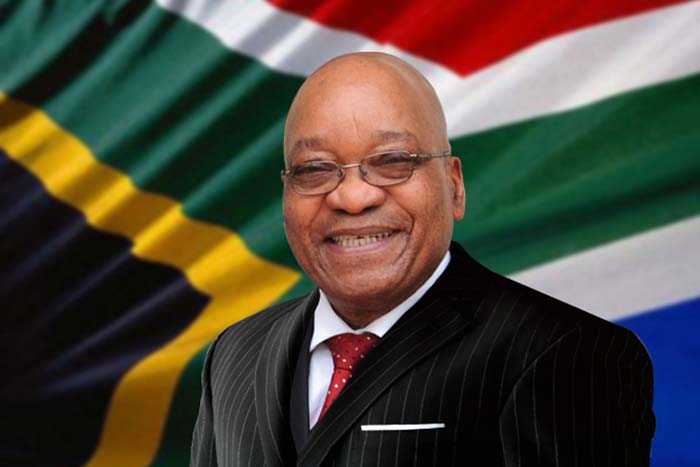
Question: What are the major New Year development plans of your esteemed country in the New Year in economic and political fields in the 2017?
Answer: As another year has passed by, and we begin to move into 2017, it is with great pleasure that I convey on behalf of the Embassy of the Republic South Africa, our best wishes to the Korea Post and the readers for a happy and prosperous 2017!
As we start the New Year, it is time for reflection, contemplation and analysis. It is a time, as we move forward in our lives, to leave behind the setbacks and limitations of the past because with a New Year comes new opportunities and the promises of immeasurable possibilities.
This may hold true not only for us as individuals but for nation states as well.
Just as each of us is greeting the New Year with the intention of constructive change and the expectation of exciting new possibilities in our personal lives, let us also greet it with the same intentions and expectations in the life of our respective countries.
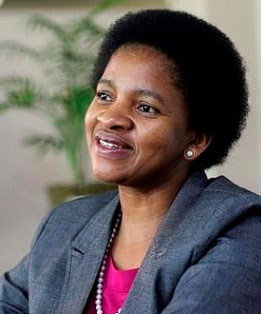
2017 coincides with the 23rd anniversary when South Africa in April 1994 held its first non-racial democratic elections, signalling the end of racist apartheid rule. It is a day when we celebrate our triumph over institutionalized racism, repression, state-sponsored violence and the enforced division of our people based on race or ethnicity.
Each passing year, my country moves forward, towards a better life for all, against many odds.
Progress has been made in various other aspects, including our participation in the international arena. However, more hard work awaits us all in 2017 as challenges still remain. The goal is to build a South Africa where economic opportunities increase for all and not just a few, and where inequality, poverty and unemployment become a thing of the past.
In this regard, the pursuit of economic transformation will continue. As a country we have to work more assiduous in 2017 to ensure long-term economic development as well as unity, healing and reconciliation in our country.
We will continue to focus on the areas as mentioned in the 2015 State of the Nation Address, in what we called the Nine Point Plan to ignite economic growth and create jobs.
The New Growth Path, launched in November 2010, builds on plans to restructure the economy to ensure more inclusive and sustainable growth – and sets a target of creating five million new jobs by 2020. The road map to do this is provided by the Industrial Policy Action Plan, which proposes multi-sectoral interventions across agriculture, mining, manufacturing, tourism and other high-level services to create substantial employment.
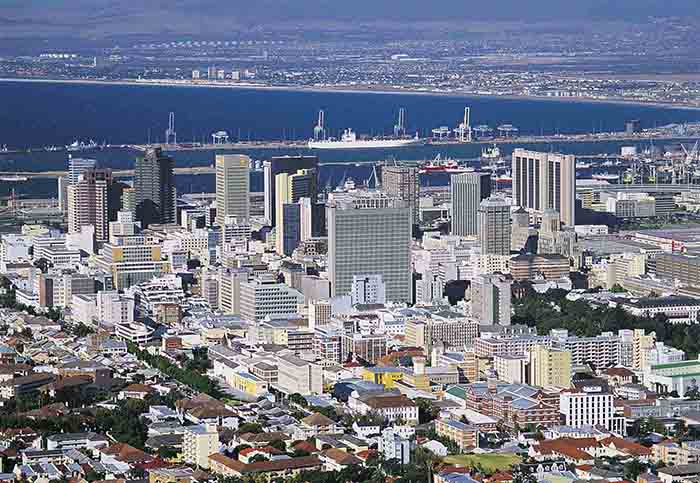
South Africa’s structural challenges and reforms are articulated in the National Development Plan (NDP). The enhancement of South Africa’s economic development is to convert this plan into actions that deliver on the promise for a better life for all, by drawing on the energies of its people is given voice through the National Development Plan 2030 that was launched in August 2012.
The NDP outlines two main strategic goals: to double GDP by 2030 and eliminate poverty, and to reduce inequality, through expanding economic opportunity for all by:
Investing in and improving infrastructure, as well as supporting industries such as mining and agriculture;
Diversifying exports;
Strengthening links to faster-growing economies;
Enacting reforms to lower the cost of doing business;
Reducing constraints to growth in various sectors;
Moving to more efficient and climate-friendly production systems; and
Encouraging entrepreneurship and innovation.
The NDP enjoins us to build a resilient economy while meeting our international obligations and in doing so, we must contribute to the development of the Southern region and the African continent at large.
In this regard, we have worked within the collective of the Southern Africa Development Community (SADC) to enhance the implementation of the regional integration programme following the launch of the SADC-COMESA-EAC Free Trade Area (FTA) in 2015.
South Africa will utilise its tenure as Chair of SADC in 2017 to lead the regional efforts aimed at improving the living conditions of our people through increased economic connectivity and prosperity.
In the same vein we have spared no energy in implementing the African Union’s 2015 Johannesburg decision to negotiate the launch of our continental Free Trade Area (CFTA). We are therefore encouraged by the determination to conclude these negotiations in 2017.
We continue to be guided by the AU’s shared vision as encapsulated in Agenda 2063 which, among others, commits us to silence the guns by 2020 in order to realise our socio-economic development trajectory and a sustainable, developed and economically integrated Africa.
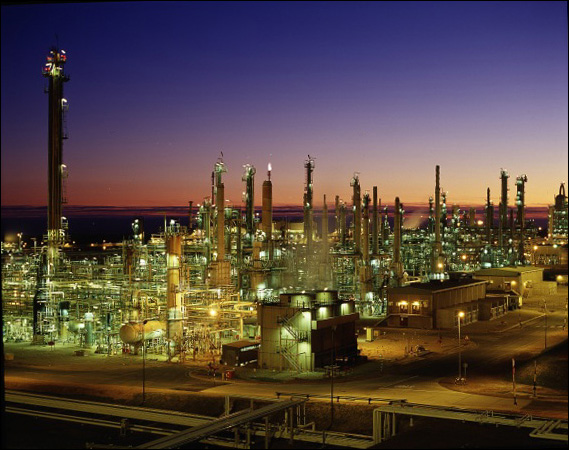
South Africa was elected to the AU Peace and Security Council (AUPSC) for the period 2014-2016 and again for 2016-2018.
The AUPSC has made a significant contribution over the past ten years in addressing the challenges of peace and security in Africa through peace-building and peace-keeping efforts, as well as post-conflict reconstruction.
South Africa will support the AU Commission and its new leadership that will be elected in January 2017 in order to continue with our continental journey towards the Africa we aspire by 2063.
The outgoing AU Commission Chairperson, Dr. Nkosazana Dlamini-Zuma, has displayed admirable leadership, in particular the conceptualisation of Agenda 2063, which has since been adopted as the continent’s vision – the “Africa we want”.
Dr. Dlamini-Zuma’s emphasis on continental self-reliance in funding the AU’s programmes and projects will be one of her enduring legacies, as well as the marked improvement in the working methods of the AU.
South Africa will continue to champion the African Agenda, as well as ensuring sustained effective and efficient running of the continent’s affairs.
The African continent will thus remain high on the agenda in our engagements with other partners across the globe.
In October 2016, South Africa was elected to serve as the Chair of the International Atomic Energy Agency (IAEA) Board of Governors. South Africa, led by Ambassador Tebogo Seokolo, will Chair the body until October 2017. The election of South Africa as chair is an affirmation of the country’s leadership role on the world stage, on matters of nuclear disarmament, nuclear non-proliferation and the peaceful uses of nuclear energy
South Africa will also chair the Indian Ocean Rim Association (IORA) in 2017-2019. We view the IORA as the pre-eminent regional organisation linking Africa, the Middle East, Asia, and Australasia via the Indian Ocean.
South Africa views the Ocean Economy as a strategic focus area for the foreseeable future. Our preliminary priorities as Chair of IORA include the Blue (Ocean) Economy; promoting innovation, research and development; and a deepened and broadened interaction with regional organisations.
As Chair, we will also have an African perspective as we will seek to align the activities of IORA to the “2050 Africa’s Integrated Maritime Strategy” in areas such as maritime security, capacity building, skills development, and technology transfer in the ocean economy.
This all augurs well with our bilateral relations strategy which focuses mainly on the promotion of Foreign Direct Investment (FDI), tourism and market access with a view to addressing the triple challenges of poverty, inequality and unemployment.
Our economic diplomacy seeks to contribute towards the realisation of the NDP vision and by extension the AU’s Agenda 2063 and the United Nations Sustainable Development Goals (SDGs).
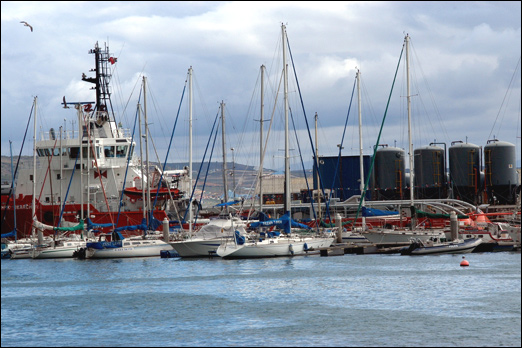
Q: Any promotional plans for further development of relations between Korea and your country, including the possible dispatch of an economic delegation to Korea?
A: The year 2017 is of special significance as South Africa and South Korea celebrates 25 years of formal diplomatic relations. It is a historical occasion to reflect on the where we have come from and where we planning to go in strengthening of bilateral relations between the two countries.
In commemorating our anniversary and to highlight the advancing relations, both countries intend celebrating this milestone through an exciting and diverse range of events – such as hosting cultural performances, film screenings and art exhibition/s.
In principle the bilateral relations between our two countries could be divided into two stages. From an historic perspective, initial interaction between South Africa and South Korea dates back to the Korean war of 1950-53. At that time the 2nd Fighter Squadron (the Flying Cheetahs) of the South African Air Force, volunteered and participated as part of the UN Allied Forces. This act of solidarity and concrete expression of support has largely remained an unforgettable act in the minds of the Koreans.
Formal diplomatic relations between South Africa and South Korea were established on 1 December 1992. As mentioned, in December this year will mark the 25th anniversary of diplomatic relations between our two countries. Since then, our bilateral relations have grown steadily, which was reinforced by the visit of the then illustrious President Nelson Mandela who visited South Korea in 1995. An important milestone to formally structure bilateral relations led to the establishment of the Policy Consultative Forum (PCF) between the two countries in April 1997. This Forum is a vital platform that enables our two countries to strengthen and deepen bilateral and multilateral relations; to enhance cooperation in specific sectors and further strengthen cooperation in the areas of trade and investment.
South Korea’s relationship with Africa is evolving – the recently held Africa-Korea Forum in December 2016 in Addis Ababa, Ethiopia provided an opportunity to review and update priorities for Africa and Korea; to deepen its partnership. Korea is keen in sharing with Africa its collective experiences, knowledge and mind-set to build a collaborative partnership for mutual growth and prosperity. It has a number of unique strengths that it can leverage in its engagements with Africa.
Q: Please introduce the Head of Government of your country with a copy of the portrait photograph of the Head of Government.
A: The President of the Republic of South Africa, His Excellency President Jacob Gedleyihlekisa Zuma, was born on 12 April 1942 at KwaNxamalala in Nkandla, northern KwaZulu-Natal.
His early political consciousness was shaped by his cousin Muntukabongwa Zuma, who had fought in the Second World War and later joined the trade union movement and the ANC in Durban. The young Zuma was drawn into the organization and attended its meetings in Mkhumbane (Cator Manor).
The President joined the ANC Youth League and SACTU in 1959. He became an active member of the ANC in the 1950s. The 1950s were characterised by the Defiance Campaign, the adoption of the Freedom Charter during the Congress of the People held in Kliptown in 1955, the anti-pass campaigns and the historic 1956 Women's March on the Union Buildings.
President Zuma was recruited into Umkhonto Wesizwe by the stalwart of the liberation struggle, the late Moses Mabhida. Zuma was arrested in June 1963 near Zeerust in the present day North West Province. On the 12th August 1963 the sentence was passed, 10 years imprisonment on Robben Island. He was only 21 years old when he began serving his sentence.
True to its name, Robben Island taught President Zuma and many of his peers many things about our country and struggle. He was released from Robben Island Maximum Security Prison in 1973. He came out more determined than ever before to fight for freedom.
During his period in exile, President Zuma engaged in underground work with former President Thabo Mbeki and others supporting internal resistance.
He began serving at senior leadership levels at this time and was later appointed Head of underground structures and Chief of the Intelligence Department in Lusaka.
When the ANC began to talk to the apartheid regime in the 1980s President Oliver Tambo selected Mr Zuma and Mr Mbeki to execute this delicate and complex task.
The National Executive Committee selected President Zuma to lead the compact advance group that came into the country to prepare for the commencement of Talks-about-Talks after the release of former President Mandela and the unbanning of political organizations by the last President of the white-minority based Republic, Mr FW de Klerk in 1990.
In November 1990, President Zuma was elected Chairperson of the ANC’s Southern Natal region. In 1991, at the first ANC conference held in South Africa since 1959, he was elected Deputy Secretary General, serving under the current ANC Deputy President Mr Cyril Ramaphosa, who was Secretary General at the time.
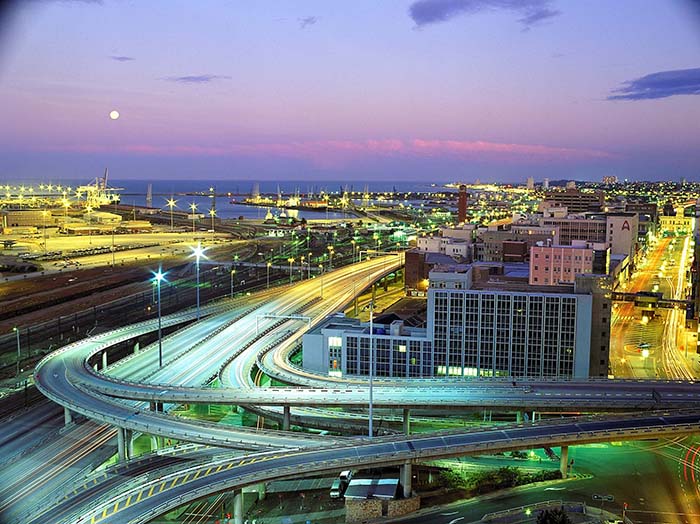
In December 2007, Zuma was elected as President of the ANC and was inaugurated as President of the Republic for his first term on the 9th May 2009.
Working together we can do more
President Zuma began his first term by reconfiguring government to improve performance, while promoting collaboration with society under the theme of the fourth administration, Working Together We Can Do More.
New government departments were established, most importantly, two new functions and Ministries were created in the Presidency, Performance Monitoring and Evaluation and the National Planning Commission.
One of the key achievements of the administration is the development of the National Development Plan Vision 2030 by the National Planning Commission, established by President Zuma in 2009.
Another key feature of the administration has been the President’s hands-on management of the economic development programme. This led to the establishment of the Presidential Infrastructure Coordinating Commission to drive the implementation of the massive and successful public infrastructure development programme.
The fourth administration also prides itself on the success of many other programmes. More impetus has been given to the programme to fight the HIV and Aids with dramatic achievements such as the halving of mother to child transmission of the virus and putting more than 2.5 million people on treatment and an increase in life expectancy among South Africans.
The African agenda, the principles of Pan-Africanism, the unity of the African continent and the economic development and integration of Africa have also been hallmarks of President Zuma’s fourth democratic administration.
The economic development of the continent has also continued to be high on the agenda. South Africa has consistently sought to nurture regional integration at three levels, SADC, the Southern African Customs Union and the Tripartite Free Trade Area comprising SADC, the Common Market for Eastern and Southern Africa and the East African Community. President Zuma is determined to continue promoting the developmental goals of the continent through these important continental structures.
South Africa became a member of Brazil, Russia, India, China and South Africa bloc of countries (BRICS). BRICS has proved to be an important platform for engagement on issues of developmental cooperation, African Agenda and reform in global governance institutions.
Under President Zuma’s leadership the country continues to participate and promote the transformation of international institutions such as the United Nations, the G20 and Bretton Woods Institutions.
Moving South Africa Forward
President Zuma assumed his second term in office as President of the Republic on 24 May 2014 following the ANC victory in the national general elections held on 7 May 2014.
His priority during this second term is to mobilise society behind the 2030 Vision which is articulated in the National Development Plan, the country’s socio-economic development blueprint.
The implementation of the National Development Plan will help move the country closer to the cherished vision of a truly united, non-sexist, non-racial, democratic and prosperous South Africa.
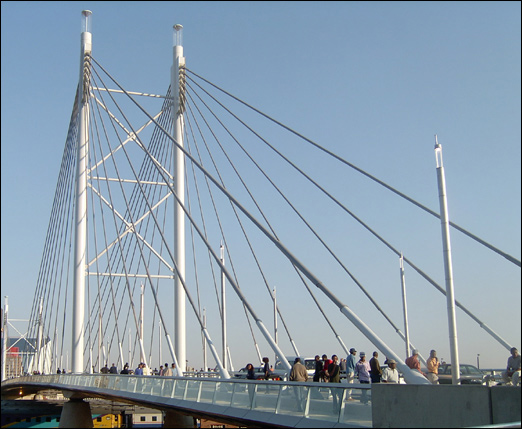
Q: In what areas are the areas of economy where Korean companies are welcome in your country? Do you have any specific Korean business organizations in mind favorably considered for economic cooperation with your country?
A: In the economic front, trade and investment is a vital part of South Africa – South Korea bilateral relations. With the new wave of interest in Africa as an investment destination, South Africa can be a pivotal entry point for Korean investors. South Africa has many attractive attributes for foreign companies looking at investment opportunities in Africa and has the most diversified and sophisticated economy on the continent, it has a large formal sector, a strong services sector, a sound legal system and strong industrial base.
There is still considerable opportunity for the expansion and diversification of trade between the two countries. Currently the trade of goods comprises of a vast range of products, from minerals and semi-finished products to high-technology electric and electronic products.
The South African Government through its New Growth Path seeks to boost economic development in six job drivers, namely mining, agriculture, tourism, infrastructure development, the green economy and manufacturing.
My Government has also declared the economy an apex priority and the new areas of growth such as the oceans economy; the green economy and shale gas exploration have been opened. The ocean economy is bursting with potential, which is fast-tracked through Operation Phakisa in the areas of marine aquaculture, marine transport, offshore oil and gas exploration, and marine protection.
In supporting investors there is a new framework for Special Economic Zones that allows for targeted incentives, logistics improvements and active partnerships between businesses, municipalities and development agencies.
South Africa is also investing heavily in infrastructure such as electricity, transport, water, roads, schools and hospitals to build a platform for faster, more inclusive economic growth.
South Africa is well positioned to supply South Korea with products related to mining; automotive components; agro-processing; textiles; jewellery; and chemicals. South Africa is an important supplier of bulk raw materials and semi-processed minerals and metals, such as gold, coal, ferro-chromium, ferro-manganese, iron ore, stainless steel, lead, copper, nickel and zinc, for production processes in Korea.
Over the past few years, a number of Korean companies have opened offices in South Africa. Major companies such as LG, Hyundai and Samsung have established themselves firmly in the South African market. Both Samsung and LG have set-up assembly operations for TV sets in South Africa that created employment opportunities for a substantial number of South Africans. Other Korean companies, like KEPCO, Korea Exim Bank, POSCO, Hanwha Corporation, LS Cable, Handysoft, Hankook Tire Worldwide, Hi-Logistics and Uno & Company have also invested in projects in South Africa.
South Africa indeed welcomes and encourages further Korean investment that will lead to the creation of job opportunities and stimulate economic growth. Increased Korean engagements with South Africa also afford the opportunity to expand co-operation in fields such as skills development; transfer of technology; rural development (Saemaul Undong); energy; and direct investment in assembly plants.
As a world leader in technical education, South Korea could possibly support South Africa in its advancing its Skills Enhancement Programmes. Similarly, in the area of minerals beneficiation, South Korea would be an ideal partner in adding technical know-how to South Africa’s rich mineral wealth. The ROK has vast experience in poverty relief and job creation and could provide its expertise and knowledge know-how to South Africa in this area of its development.
In overall, South Africa offers investment opportunities for foreign investors across a wide range of economic activities along the entire value chains (from farm, forest or fishery through to intermediate inputs for industrial applications as well as final consumer products).
Q: Please state whatever other important details we might have left out from the above questionnaire.
A: We are looking ahead to the future and to nurture the friendship between our peoples, in particular in enhancing cooperation in culture and people-to-people. Consideration should be given to the exchanges between the young people of our two countries, so that they can carry forward our traditional friendship.
We sincerely hope and welcome more South Korean friends to visit South Africa and see by themselves the positive developments of South Africa since 1994 and the good will of the South African people.

